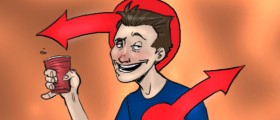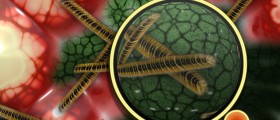
We All Have Defense Mechanisms
Defense mechanisms, in psychology and psychoanalysis in general are systems of behavior we use in order to protect ourselves from negative emotions and experiences. Namely, we negate unpleasant thoughts, experiences and attitudes through using defense mechanisms in order to distance ourselves away.
There are different types of defense mechanisms that one might have and these are used differently by separate individuals. Nevertheless, these may be divided in categories as the following ones are.
Defense Mechanisms of Human Beings
The first, common defense mechanism is compartmentalization. This mainly depicts people who have two or more separate systems of values, one negating the other. For example, a person may be known as honest and righteous towards other people, not paying taxes or cheating in some other respect.
Compensation is another common defense mechanism. Here, people manage to cope with their weaknesses by emphasizing some other qualities they are known to possess. So, if a certain he/she is not a fighting one, he/she may compensate by claiming that he/she is an excellent loving person.
Then, we have denial, which is very common, especially during childhood, where we completely shut down all negative aspects we have, ignoring them as if these do not exist.
We can also use displacement. Here, people channel their emotions from one destination to another. The best example would be to hit the table with your fist when you are actually in the mood of hitting your superior in the face.
Fantasy can be used for motivation, serving as a defense mechanism. When you are not successful in a certain area, you may always imagine being good at it and feel more positive this way.
Intellectualization is yet another approach to this way of self-defense. This, basically, stands for concentrating on certain cognitive aspects of a problem rather that dealing with your emotions. The best example are people who suffer from a terminal disease, being obsessed with survival statistics, treatments and other things, neglecting their emotions and fears.
Further more, in situations when we had wanted something, failed to get it and then described it as unwanted, we are using rationalization. A real-life example would be trying to get promoted, failing and then commenting how you never actually liked this option of promotion in the first place.
Sometimes, in order to protect our inadequate desires from being visible, we do somethings completely opposite. For example, a mother who dislikes her child may take extra care of him/her.
Finally, we may regress to a previous state when faced with problems. Then, we might return to the way we acted and lived while we were younger, denying the present. Also, upon doing something bad, we can use defense mechanisms such as undoing, praising people we were treating badly before etc.

















Your thoughts on this
Loading...